Tell us whether you accept cookies
We use cookies to collect information about how you use this site. We use this information to make the website work as well as possible and improve our services.

Travel Aware
Staying safe and healthy abroad

Advice for going abroad
Stick with your mates.

Going abroad with your mates is all about having fun. Lounging by the pool, catching the rays and partying into the early hours.
It should be a trip you want to remember for the right reasons.
Sadly, for a small number of Brits, their holiday ends in a hospital ward or a police station.
But we are here to share with you a few simple tips that can help you have a holiday to remember, not one to forget.
Here are five things that can help prevent things going wrong on the strip:
Friends don’t leave friends behind.
Serious incidents often happen after drinking alcohol when you are alone and isolated.
◊ TIP: Stick with your mates throughout the night. Stay in contact and if you’re staying at the same accommodation, go home together.
Drinking abroad can be different than back in the UK. The quality and measurements of alcohol can be larger, cheaper and deals can result in you being drunk quicker than intended.
Drinks spiking can also take place on holiday. Spiking is adding alcohol or drugs to someone’s drink without them knowing.
S piking is commonly used to distract you from theft or impair you before an assault .
◊TIP: Do not leave your drink unattended and do not accept drinks from complete strangers. This is the best strategy to prevent the possibility of your drink being spiked.
◊TIP: Consume water in-between alcoholic drinks. This will help pace you throughout the night and help keep you hydrated.
◊ TIP: Drink at your own pace. Everyone’s tolerance to alcohol is different. Consider avoiding rounds or having a break from drinking alcohol if you are feeling uneasy.
Remembering where to go at the end of the night can be tougher than you think. It’s a new environment, a different climate, and drinking alcohol could make this harder.
TIP: Keep details of your accommodation on you. Consider taking a screenshot of the hotel’s address before going out. Or ask reception if they have an address card you can take and store in your wallet.
◊ TIP: Use messaging apps to set up a group chat. This way you can send your location to your friends if you get lost or check they are safe if you lose them.
It is easy to get lost in a foreign country. Add alcohol and sun and it’s now even easier to get lost.
◊ TIP: If you are on the strip, before your first big night, familiarise yourself with the area. Exploring your surroundings will help you remember where you are later.
◊ TIP: Agree a meeting place in case you lose your friends and cannot get in contact (e.g. phone out of battery or lost etc.)
Travel insurance
Travel insurance is important. It provides protection and coverage for unexpected events that can happen on holiday. Travel insurance can cover a range of scenarios, such as:
- medical emergencies and repatriation
- lost or stolen baggage
- trip cancellations or interruptions
- natural disasters
You must purchase insurance cover that is appropriate for your travel plans. Travelling without the right cover can be very expensive if things do go wrong while you are abroad.
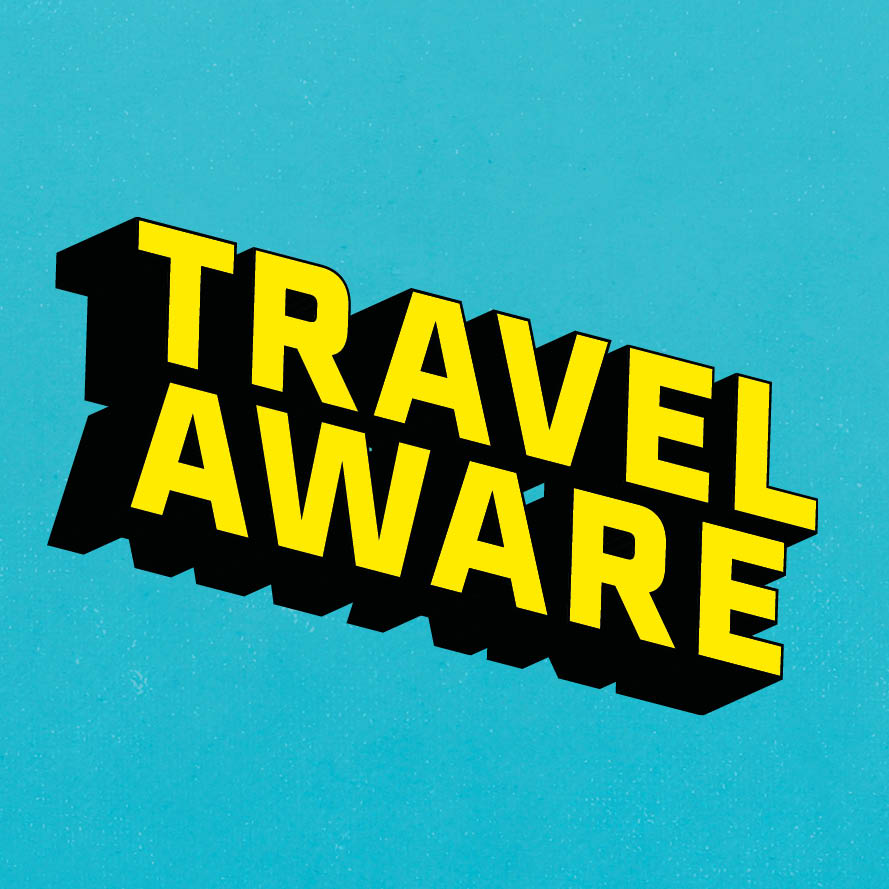
There are many reasons why travel insurance may be invalidated.
If you buy a basic policy that does not provide enough medical coverage, you may get a big bill if you have an unexpected health issue on holiday.
You may buy a policy that does not cover your planned holiday activities such as water sports or quad biking; or does not cover cancellations or delays. If you’re injured doing activities, or your trip is disrupted, you may have a big bill to pay.
So, before you go on holiday, you can do some small things in only a few minutes which could save you a lot of money.
You must declare all pre-existing medical conditions when buying travel insurance. If you already have cover, you should check that your list of medical conditions is up to date before each trip abroad.
Failure to do this could mean your claim is rejected if you have a medical emergency while travelling.
Therefore you must be honest about any medical conditions you have, to avoid risking a big bill.
Check your policy to see what you need to declare. Medical conditions can include, but are not limited to:
- heart conditions
- high blood pressure
- respiratory conditions (such as asthma)
- mental health conditions
- any form of cancer
When buying travel insurance, consider the type of coverage you need. If you intend to engage in adventure activities, like quad-biking or water sports, you may need specific insurance cover. Check your policy before you travel to make sure all your activities are covered.
Make sure you buy travel insurance that covers the entire duration of your holiday. Some insurance policies have a limit on the amount of time you can be abroad; if you exceed it, your policy may be invalidated.
You may assume you will not need to be brought home for medical reasons whilst on holiday. But, if you become ill or injured while travelling, you may need to be transported to hospital, or back to the UK, for treatment. Medical evacuations can cost thousands of pounds.
Check your policy covers medical evacuation before travelling. This is especially important if your trip includes adventure activities like climbing, quad-biking or water sports.
Before you go on holiday, share your insurance policy details with travel companions, and friends or family at home. This can be helpful in case they need to contact your insurance company on your behalf, if you get into trouble abroad.
When you travel, take a paper copy of your insurance policy with you. If you lose your phone abroad, this paper copy will provide the information you need, including your policy number and insurer’s emergency 24 hour telephone number.
More information

Travel advice

More travel insurance info

Global Health Insurance Card (GHIC)
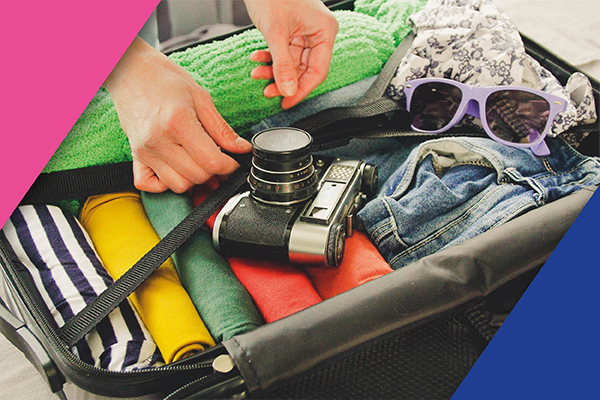
Travel checklist

Worldwide help and services
- Twitter @FCDOtravelGovUK

Shining a light on the green and gorgeous
What is green travel?
- May 3, 2021
Travel Green List
Monday 28 March: The UK Government has updated its advice for travelling abroad, see:
Travel abroad during coronavirus , including the following checklist of what travellers need to do:
Check foreign travel advice for all countries you will visit or travel through
Arrange any COVID-19 tests you will need to enter the countries that you will travel to
Find out how you can use the NHS COVID Pass to prove your vaccination status abroad .
On 14 March, Which? published a guide to the latest information on Covid travel rules regarding passenger locator forms and travel tests. It says there are currently no countries on the red list – all countries and territories are now on the green list – so arrivals in to the UK don’t need to complete a passenger locator form, test or quarantine, regardless of vaccination status. But other destinations have their own rules on entry to visitors from the UK, so it is crucial that you check the foreign travel advice of other countries before you visit.
10 Jan 2022: Foreign holidays are now allowed again, but destinations have been categorised by the UK Government according to a 'traffic light' system of green, amber and red, which lists countries based on risk alongside the restrictions required for travel "to protect the public and the vaccine rollout from international COVID-19 and its variants".

The traffic light system that was originally announced by the Government on the 7th May has been updated and the Green List now includes Australia, Austria, Balearic islands (Formentera, Ibiza, Mallorca, Menorca), Bermuda, Brunei, Bulgaria, Madeira, Malta, Croatia, Germany, Slovenia, Slovakia, Latvia, Romania, Norway, and several Caribbean islands, such as Anguilla, Antigua and Barbuda, Barbados, Cayman Islands, Dominica, and Turks and Caicos Islands. Travellers to the green list countries need to provide a negative test before they return as well as on day two after they land; they also have to to submit their contact details to health officials. The full Green List of Countries (as well as Amber and Red Lists) is listed on this page of the UK Government's website: Red, amber and green list rules for entering England
Here is a summary of the conditions:
Green : Before you travel back to England you must: take a COVID-19 test; book and pay for a day 2 COVID-19 test – to be taken after arrival in England; complete a passenger locator form. On arrival in England you must take a COVID-19 test on or before day 2 after you arrive. Children aged 4 and under do not need to take this test. You do not need to quarantine unless the test result is positive. You must quarantine if NHS Test & Trace informs you that you travelled to England with someone who has tested positive for COVID-19.
Amber : The government says people should only travel to destinations on its amber list in "exceptional circumstances". Before you travel back to England you must: take a COVID-19 test; book and pay for day 2 and day 8 COVID-19 travel tests – to be taken after arrival in England; complete a passenger locator form. On arrival in England you must: quarantine at home or in the place you are staying for 10 days; take a COVID-19 test on or before day 2 and on or after day 8.
Red : arrivals will be subject to restrictions currently in place for ‘red list’ countries which include a 10-day stay in a managed quarantine hotel , pre-departure testing and PCR testing on day 2 and 8.
You must follow all of the above rules even if you have been vaccinated.
Arrivals travelling from ‘red list’ countries should book a quarantine package before departure, and arrivals from ‘amber’ and ‘green’ countries are required to book test packages before travelling from one of the government’s approved list of providers.
Key factors in the assessment included:
the percentage of their population that have been vaccinated
the rate of infection
the prevalence of variants of concern
the country’s access to reliable scientific data and genomic sequencing
The Government says risks posed by variants remain significant, and restrictions for inbound passengers, such as 10-day managed quarantine, home quarantine, and stringent testing will remain in place - but will apply to people differently depending on whether the destination visited is categorised as ‘green’, ‘amber’ or ‘red’.
The government says testing remains an essential part of protecting public health as restrictions begin to ease.
Here's a checklist for before you go travelling:
Check the latest Foreign, Commonwealth & Development Office travel advice for your destination to find the latest entry requirements and local rules relating to Coronavirus.
Check the Government’s traffic light list to find out what you need to do for your journey back to the UK.
Take out travel insurance as soon as you book and check its cover for Coronavirus.
Make sure all your travel documents are in order, e.g. your passport is valid for your travel dates and you’ve applied for the visas you need.
Research the new measures that will be in place on your journey and in-destination, e.g. the rules around face coverings and social distancing.
If you’re travelling to Europe, check what extra steps you need to take before you go at Brexit Advice for Travellers .
Browse Green Traveller to plan for when travel starts up again, here are just a few of our most popular pages and sections: Green Traveller's Guide to Green Spain
Flight free routes from the UK
How to travel to Spain without flying
How to travel from Scotland to Europe without flying
Green Traveller's Guide to the Peloponnese, Greece
All Green Traveller's Guides
- Green Travel News
Related Posts
Sustainability 'important' for British travellers
New videography holidays launched
Shell opens its first all-electric vehicle station
- Skip navigation
- Find a branch
- Help and support
Popular searches
- Track a parcel
Travel money
- Travel insurance
- Drop and Go
Log into your account
- Credit cards
- International money transfer
- Junior ISAs
Travel and Insurance
- Car and van insurance
- Gadget insurance
- Home insurance
- Pet insurance
- Travel Money Card
- Parcels Online
For further information about the Horizon IT Scandal, please visit our corporate website
- Holiday packing and pre-travel checklist
So, you’ve booked your flights, accommodation and activities. What next?
Let’s make sure you’re not leaving anything out – from what to book and arrange upfront to the essential items to pack when you go.
Posted: 24/1/2022 | By Amanda Duffy
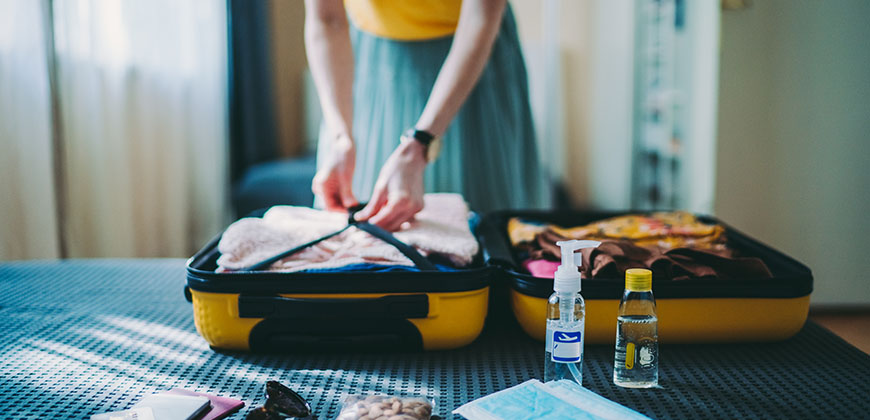
We’ve put together checklists for travel in general and for specific types of holiday too, so you can tick things off easily, wherever you’re off to. With so much else to keep in mind when you’re getting set to travel, checklists can help you avoid forgetting something important.
Before you go
Packing list essentials.
- Checklists by holiday type
There are a few things you should do to get your house in order before you leave for your holidays.
Bills and utilities
- Let your credit/debit card company know you may be using it abroad – it will help avoid problems later
- Pay bills in advance that will be due while you’re away
- Turn off electrical wall sockets (except the fridge and the freezer) if your home is going to be empty
- Set timers for devices or appliances you still want to come on while you’re away, like lights (to put off would-be burglars) or your boiler
- Contact your mobile operator to see if roaming charges apply where you’re going – if they do, discuss your options
Practical tips
- Clear out the fridge of anything that’s going to go off while you’re away
- Find a place for your pets – ask a friend, family member or neighbour to look after them or book with recommended local kennels or catteries
- Let a neighbour know you’ll be away – give them spare keys and emergency contact details just in case
- Book airport parking – paying in advance could help you save money, especially if you book reputable services a bit further away and catch a shuttle bus to the airport
Protect what matters when you go with good travel insurance
Documents and travel insurance, check your passport.
How long is left on your passport? Check in good time for everyone who’s due to travel, in case any are about to expire. Some countries refuse entry to tourists whose passports are less than six months from expiry.
Applying for a new passport can take at least six weeks, while renewing a passport takes three weeks – so don’t leave it to the last minute. Passports can be renewed or replaced at any time.
You should also check well in advance if you need a visa for your destination. The time it takes to apply and receive a visa can vary.
Get travel insurance
Good travel insurance for everyone in your family should be top of the holiday checklist. It can provide extra reassurance as it may cover you for cancellation before your trip, missed or delayed flights, or lost, stolen luggage and other belongings such as passports and cash. Most importantly, it may cover emergency medical costs if you need attention while away.
In EU countries, a Ghic or Ehic will give you free or low-cost emergency and state medical care, but they’re not a replacement for travel insurance . They won’t cover you being airlifted from a mountain or flown back to the UK, or extra accommodation or transport costs for a family member if you need a long stay in hospital. So, it’s best to have your travel insurance in place well before you go and take all documents with you.

It’s important to have some cash wherever you are going, even if you are visiting a largely cashless place. You never know what you might need it for. So local currency comes high on any holiday essentials list.
Don't pay over the odds for travel money at the airport. Get it sorted as soon as possible, ideally when the pound is strong against the foreign currency you need. Use a currency converter to check the exchange rate.
Make sure you have at least two different debit or credit cards – memorising both PIN numbers. Keep one in a safe place as an emergency backup. Note that some banks charge for cash withdrawals overseas. You can also load travel money onto prepaid travel money cards .
Travel apps are also available that help you keep track of your holiday spending and convert local prices into pounds easily when you’re away.
Your travel itinerary
Find out your flight times, including departure time and when to check in by, and add in plenty of extra time to get to the airport and for unexpected delays.
Check in online the night before if you can and print off your boarding passes, as some airlines charge you to issue a boarding pass at the airport. Print off an extra set and keep them separate, just in case.
Double-check your accommodation check in times. If you get there early, you may need to wait for them to get your room or whatever you’re staying in ready.
Find out if they’ll hang onto your luggage in the meantime – then you can explore without carrying your bags around with you. Just remember to take any valuables with you or ask to leave them in the reception safe.
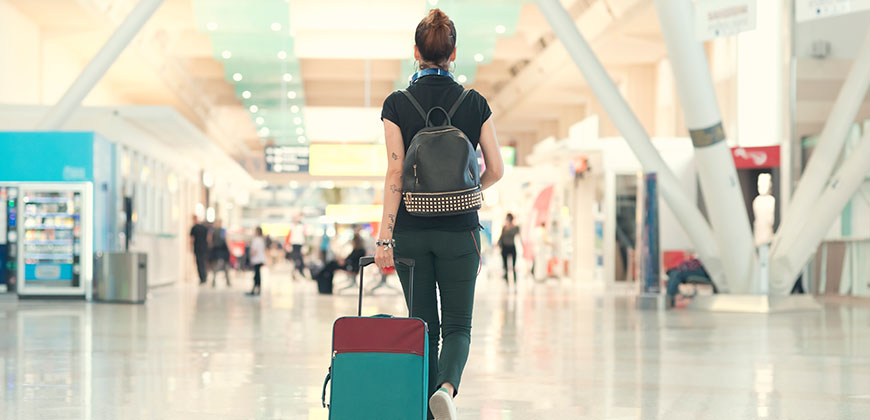
In the following checklists, we cover off the absolute essentials you’ll need wherever you’re going, and whatever type of holiday you’re going on. And we answer the question “what documents do I need for my holiday?”
We haven’t listed clothing – just take what’s appropriate for the climate in your destination and any activities you’ll be doing. And remember to pack a pen and paper – they’ll be useful in all kinds of situations, especially if your electrical gear fails you.
When you’re packing, make sure you know the airline’s weight limits for hand luggage and checked bags. Weigh your luggage on the bathroom scales before you go. If your hand luggage is too big, you’ll have to check it in – and that usually means an extra charge.
Don't forget the essentials
Travel documents.
The travel documents you need in order to be able to travel are:
- Boarding passes
- Visas (if required – print and take with you)
- ESTA (if you’re travelling to the USA – print and take with you)
Take a copy of your passport details in case it gets lost and you need to apply for an emergency replacement . Other important documents for your travels might include:
- Travel insurance documents
- Itinerary details – a list of addresses of where you’ll be visiting and when
- Home address details in the UK
- Contact details for your bank, particularly the overseas contact number
- Any onward travel (such as train) documentation
- Information about the British embassy in the country your visiting, or your nearest consulate
- Travel agency contact details if relevant
- Ghic or valid Ehic for EU trips (see ‘health and medication’ below)
- Driving licence (as a form of ID whether you’ll be driving or not)
- International Driving Permit (IDP)
- Hire car details
- Booked excursion details
- Licences for activities you need them for (e.g. PADI certificates for scuba diving)
- Contact details of next of kin
- GP contact details
- Prescriptions and lists of personal medications currently being taken
- A letter from your GP confirming you’re taking, and need to take, your medicines
- Inoculation and vaccination certificates
- Organ donor card (if you have one)
- Medical bracelet (if you wear one)
- Images and serial numbers of valuable items you’re taking with you
- ATOL certificate
You don’t need physical copies of all these things, but it’s a good idea to have digital copies. If you’re taking photos of them, they need to be accessible if you don’t have internet access, so you could store them on your phone’s memory or laptop hard drive (if you’re taking one). Just make sure you keep them charged.
It’s also wise to email all of these to someone at home so that there are emergency back-up versions available should you lose your phone or computer.
Toiletry items to pack could include:
- Conditioner
- Toothbrushes
- Moisturiser
With a few of you going away, your luggage may tip the airport scales with toiletries alone, so take smaller bottles of everything, including shampoo, conditioner and shower gel. Remember that you’ll be able to buy full bottles at your holiday resort if you run out.
As well as the basics, don’t forget things like glasses, contact lenses and any medicine. And remember that you can’t bring any liquids over 100ml in your hand luggage to avoid having to bin toiletries at the airport.
Entertainment and electronics
If you’ll have lots of time on your hands, such as on a beach holiday, taking enough reading material, devices and other items to keep you entertained for the full trip is a travel essential. That’s especially important if you need to keep little ones busy.
- Mobile phones
- Books/magazines
- Activity books and guides
- Tablets such as iPads
- Portable games consoles
- Music player if you don’t use your phone
- Fitness trackers / watches
- Pack of cards or selection of games (for family trips)
- Pillow and light cover for longer flights/journeys
- Chargers for all devices you’re taking
Bring mains plugs for chargers, don’t just rely on USB. Remember the right international plug adapter for your destination too. If you don’t have one, buying one before you get to the airport will save you paying over the odds there. Portable USB charging packs are a handy backup for phones and other devices when you’re on the move.
Wi-Fi in your destination may be slow, expensive or non-existent when you travel to your destination. Download all the music, books, games, guides, maps, films or TV box sets you’ll need to entertain the whole family, especially the children – or if you want to get a bit of relaxing time to yourself.
Health and medication
Medical care for Brits in the EU
Your travel necessities should include a UK Global Health Insurance Card (Ghic) or, if it’s still in date, your current European Health Insurance Card (Ehic) . These give UK nationals access to free or reduced-cost medical care while in European Union countries.
While a Ghic or Ehic is certainly a travel essential for any trip to EU countries, it’s still important to get travel insurance too. Neither Ghic nor Ehic will cover you for extras such as being airlifted from a mountain or flown back to the UK, known as repatriation. And an Ehic or Ghic won’t cover the costs to transport or accommodate a family member to stay nearby if you need a long stay in hospital. So, it’s best to have your travel cover in place well before you leave.
Make sure you also take full details of any medical conditions you have, including a record of any jabs and other medical documents that may help a local doctor should you fall ill.
Prescription medication
If you or one of your family take regular medication , pack enough in your hand luggage to last you more than the length of your holiday, including potential delays. Include a recent prescription and letter from your GP explaining what the condition is and what you’re taking for it. If you take liquid medication or need extra medical equipment such as syringes, you’ll be required to prove why you need them to travel at airport security.
First aid kits
A good first-aid kit is one of the most essential travel items to take with you. Besides your prescription medication, include a small amount of any of the following normally kept in your medicine cabinet at home:
- Painkillers (ibuprofen, paracetamol)
- Indigestion tablets
- Antihistamines (for insect bites and minor allergic reactions)
- Travel sickness tablets
- Plasters and bandages
- Cotton wool
- Antiseptic cream and wipes
- Infant or child's medication (if needed)
- Insect repellent
- Safety pins
- A pair of tweezers
- A pair of scissors
Remember, standard travel insurance policies typically provide only limited cover for gadgets, so if you’ll be taking more than your policy provides consider if you’ll need additional gadget cover .
Travel checklists by holiday type
Where are you heading? To the beach or a camp site? On a cruise or perhaps a skiing trip or city break? here are a few extras you’ll need for specific trips depending on what you’ll be doing.
What should I pack for a beach holiday?
- High factor sun protectio
- Insect repellent
- Antihistamines
- Painkillers
- Water sterilisers
- Flip flops/sandals
- Beach towels
- Portable safe (for keeping valuables safe outside of the hotel)
- Anti-theft bag
- Waterproof covering for electricals
- Light clothing
- Inflatables
- Beach activities (bucket and spade, beach tennis)
- Snorkelling kit
- Books and magazines
- Refillable water bottles
Sun, sea, sand – beach holidays are the gold standard in relaxation. As well as sunbathing and swimming, you’ll probably want to be eating and drinking your fill too.
It’s important that your travel insurance covers you for everything you’re doing. Activities that you might want to get involved in spontaneously may not be covered and you could be putting yourself at risk without making sure before you buy. You can also invalidate your policy by drinking excessively, so know your limits.
Sunbathing and tanning are what lots of us go on beach holidays for, so it’s important to remain hydrated while you’re there. It’s not always easy to buy lots of bottles of water when you’re at the beach itself, so make sure that your shops include enough bottled water. You lose lots of moisture just sitting out in the sun, so you might need to drink more water than you think in order to stay properly hydrated. Failing to do so can contribute to things like sunstroke, which can be deeply unpleasant.
And it goes without saying that you should protect yourself against the sun with a combination of high-factor sun protection for sensitive areas and clothing.
Avoid taking your valuables to the beach. Keep them in a safe in your accommodation. Or see if nearby establishments have a secure locker service. Don’t leave valuables unattended or try burying them in the sand as they risk being lost or stolen.
What should I pack for a family holiday?
Packing for a family holiday will depend on the age range of its members. A toddler and baby holiday checklist is always going to be much longer than that for older children. But remember that they have their own luggage allowance. Here’s a suggested packing list for families – just tailor it to your trip.
- Changing mat
- Teething ring
- Milk / powdered milk
- Food and snacks
- Pram/stroller/bassinet
- Clothes (for you both)
- Rusks (if you need them)
- Nappy cream
- Moisturising cream
- Sheet for travel cot
- Baby cutlery
- Nasal aspirator
- High factor sun cream
- Sun hat and suits
- Umbrella or sun shield for pushchair
What should I pack for a city break?
On top of the general items we’ve listed for any type of trip, a suggested packing list for city breaks would include:
- Map software, downloaded to be used offline
- Translation app, again downloaded to be used offline
- Sensible shoes
- Evening clothes
You may end up needing to use your phone often in a new city. Having offline apps means you won’t need to rely on Wi-Fi or data roaming charges to get around or know what to say.
Sensible shoes don’t have to sacrifice style. But if you’re going to be walking all day, it’s important to do so in comfort. And evening clothes doesn’t mean formal evening wear; simply clothes that you feel good in to go out in the evening.
What should I pack for a skiing holiday?
A ski packing list could run into many pages, but some of the essentials – depending on what you’re taking or decide to hire when you arrive – include:
- Sun cream and sunblock
- Muscle pain relief (eg. Deep Heat)
- Normal winter gloves
- Snow resistant boots/shoes (for apres ski)
- Ski hire details
- Ski boots / snowboard boots
- Walking boots
- Skis / snowboard
- Multi-purpose tool kit
- Day pack / rucksack / backpack
- Hydration bladder
- GPS tracker
Don’t forget details about your resort, including your accommodation and the best places to hire equipment from, as well as the tickets and passes to get you up the mountain. You may need spare passport pictures for your lift pass.
Ski gear can be expensive, so unless you go frequently it might be sensible to see if there are items you can borrow from friends and family rather than buying new. Again, you may not need everything on this list. If you don’t have your own skis/snowboard, for example, then it’s more common to hire them at your venue.
Sunlight reflects off snow and intensifies in the process, meaning that on the mountain you are getting sun from above and below. This can cause severe sunburn, rapid dehydration, sunblindness and chapping. Wear high-factor sun cream on exposed skin and sunblock on your lips. Carry a full hydration bladder in your backpack. Always wear UV goggles or sunglasses if you’re proficient. Chapstick can be a lifesaver if your lips do become cracked by wind and sun.
It’s sensible for your ski clothing to be brightly coloured. This is to make you stand out if you become stranded, or need to stay close to your buddies during a white out. A GPS tracker can be extremely important for those going off-piste. Remember that, if you do go off-piste, your travel insurance policy may stipulate you must still stick to recognised routes and resort boundaries in order to remain covered.
Read our detailed guide to packing for a skiing holiday .
What should I pack for a cruise?
The great thing about cruises is your comfort’s quite often in the hands of the crew, but there are a few additional items to remember, especially if you’ll be exploring the sites on shore along the way.
- Travel money – for each of the countries you’ll be stopping off at
- Prescription medications – enough for the cruise duration plus a bit more
- Evening wear
- Warm coat – something for all weathers will be handy when it gets nippy out at sea
- Footwear that can grip when wet
- Sportswear if you need it
- Daypack – to carry your travel money and other items you’ll need on shore
If you’re going on a cruise holiday, be sure to check your travel insurance policy for what it covers. Some may require you to add on additional cruise cover to your standard policy.
What should I pack for a backpacking holiday?
This checklist seems a lot to take in a backpack, leaving little room for clothes. Many of these items can be bought where you are, but if you think it’s unlikely you’ll be able to get them where you’re going then pack them in advance.
- Large backpack
- Torch (perhaps head-mounted)
- Water sanitisers
- Sun cream, sunblock and after sun
- Laundry detergent for cold water
- Clothesline (length of nylon cord)
- Portable power block
- Waterproof wallet for travel documents
- Microfibre towel
- Dry shampoo
- First aid kit – see ‘health and medication’ section above – other items to consider include constipation and diarrhoea relief, plus electrolytes and rehydration sachets (such as Dioralyte)
- Waterproof cover for backpack
- Ear plugs and eye mask
- Drinking bladder
- Portable safe
- Pen and paper
If you take prescription medicines, take plenty, a copy of your prescription and a doctor’s note explaining why you need to take them. Check there aren’t restrictions on the medicines you’re carrying in any countries you’re visiting. You may be able to get an exemption via the country’s embassy. Some common, over-the-counter medicines in the UK are prohibited in other countries. Make sure that you are not carrying these.
Bin liners can be incredibly useful and take up little space until unrolled. They can provide as makeshift waterproofing, a receptacle for dirty laundry, as normal rubbish bags and many other things.
Some items, like a cagoule, are in case you end up in weather you hadn’t expected. You won’t want to take your large backpack everywhere you go so having a daypack helps you only take what you need on excursions.
Laundry detergent might not be something you want to carry around but, if you don’t have access to supermarkets, it might prove extremely useful.
A microfibre towel is a highly-absorbent, quick-drying, miniature towel that takes up nothing like as much space as a normal one. It can be an invaluable travel buddy.
A drinking bladder (or hydration bladder) is a ‘bladder’ you fill with water that is integrated into your backpack or daypack. This can save on carrying around water bottles and keep you hydrated.
What should I pack for a camping holiday?
The first item on any camping holiday checklist is, of course, the tent. Choose one as large as your budget will allow and take your time putting it up. There’s nothing worse than an unstable tent or a water leak when the weather is bad. Other items to take along include:
- Sleeping bags
- Portable stove
- Camping chairs
- Warm sleepwear, as it can get cold at night, no matter how warm it is in the day
- Waterproof clothing
- Water bottles
- Cooking utensils
- Washing up liquid
- Washing up bowl
- Lots and lots of wet wipes
What should I pack for a walking holiday?
Suggested items for your walking holiday travel checklist are:
- Walking boots – study and comfy, ideally with ankle support
- Breathable clothing – to keep you warm or cool as needed, but ventilated
- Daypack – to take out just what you need for the day
- Water bottle or hydration pack
- Snacks – such as energy bars, trail mix, sweets and chocolate
- First aid kit – see ‘health and medication’ section above
- High factor sun cream or block and lip balm
- Handheld and head torches, plus batteries and spares
- Camping gear if you need it (see camping checklist above)
Other common questions
What should i pack in my hand luggage.
It’s a good idea to pack a change of clothes and essential toiletries in your hand luggage in case you need to call on them during your travels. Just don’t pack any liquids over 100ml , including toiletries or drinks.
Remember that, usually, once you’ve been through airport security you can buy drinks in the departure lounge to take onto the plane for your flight. It’s also worth taking some snacks, as doing so can avoid you paying sky-high prices in the air.
Another important but sometimes overlooked essential is a pen – useful for filling out immigration cards, for instance.
Have something warm to wear in your hand luggage, for use on the plane or in case it’s cold when you arrive in your destination or back home. A head pillow and eye mask, if not provided by the airline, can add extra comfort if you’ll be sleeping on the flight.
Entertainment and electronics wise, you can take mobile phones, laptops, tablets, MP3 players, electric shavers, hairdryers, straighteners and e-cigarettes in your hand luggage but must be able to switch them on if asked so make sure they’re charged. Don’t forget headphones too.
Essential medication is okay, even if it’s over 100ml, if you have a copy of your prescription or a doctor’s note saying why you take it and confirming that you need to.
You’ll find more about on hand luggage dos and don’ts on the FCDO hand luggage page .
What is not allowed in carry on?
Whenever you board a plane in the UK, there are restrictions on what the hand luggage you take into the cabin can contain. Check the full government guidance on hand luggage restrictions before you pack your hold and hand luggage to make sure you’re taking only what’s allowed – and in the right bags.
Liquids cannot go through airport security in containers of any larger than 100ml, even if only partially full. The exceptions are for essential medial purposes (such as prescriptions), special dietary requirements or baby food and baby milk.
Sharp items aren’t allowed in hand luggage, but personal items like tweezers, nail clippers and small scissors with blades no longer than 6cm are fine. You can typically carry one lighter. Any more must go in your hold luggage.
On a practical point, remember to also check in advance with your airline the number, size and weight of hand luggage allowed for each passenger.
Is a handbag classed as hand luggage?
Some airlines allow you to take a small extra bag, such as a handbag, on board in addition to their hand luggage allowance per person. This isn’t the case for all carriers, though, so you should check with yours to be sure. Details will usually be available before, during or on confirmation of your booking, and when you go to check in online.
What is the 3-1-1 rule?
Each liquid you take in your hand luggage must be a container of no more than 3.4 ounces. You must place each container in one clear plastic bag that’s a quart in size. And only one of these bags is allowed per passenger. This is known as the 3-1-1 rule.
Is it better to fold or roll clothes?
There are different schools of thought but often, and depending on the items of clothing you’re taking, a combination of rolling and folding works best to keep them in good condition during transit.
Try rolling smaller items like shorts or dresses that could crease more easily if folded.
For bulkier items like jumpers and jeans, folding should be okay. Flat packing items can be even more effective and can help free up extra space too.
Read out guide to how to pack a suitcase .

Interested in travel insurance?
Other travel products.
Order foreign currency online or in selected branches. Pick up in any branch or get it delivered to your home.
One prepaid Mastercard™ that stores up to 22 currencies.
Get your passport application right the first time. We can even complete and submit it for you digitally.
This might interest you

The opportunities to combine business and leisure have never been greater. You ...

Learn about the different types of travel insurance available from Post Office, ...
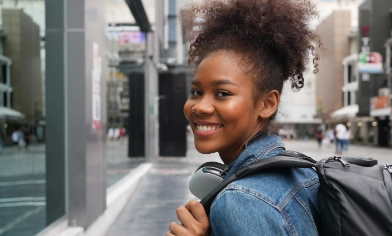
Exploring the globe can be scary, but there’s so much to find at the edge of ...
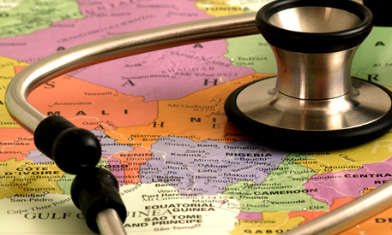
There’s no better feeling than planning an amazing trip to an exotic ...

If you're travelling to an EU country from the UK, make sure you take a Global ...
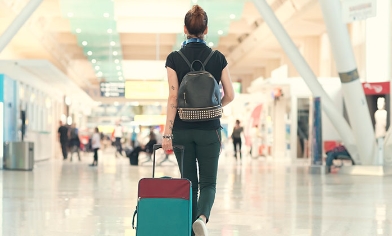
Do you need travel insurance for your trip? Is travel insurance worth it? And, ...

It's a proud feeling when children turn eighteen and start holidaying on their ...

If you're travelling abroad as a family, it makes sense to take out insurance ...

Fancy trekking in a remote Asian rainforest? A wild time in New York? Flying ...
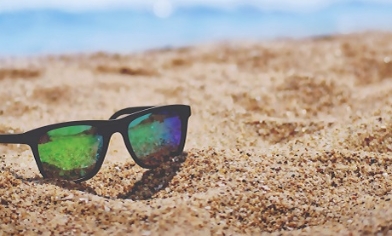
You should be able to get the right cover to travel abroad if you’re diabetic, ...

Adventurous holidays can take many forms, from action-packed itineraries in ...

Some vaccinations for Thailand are recommended and some are mandatory in ...
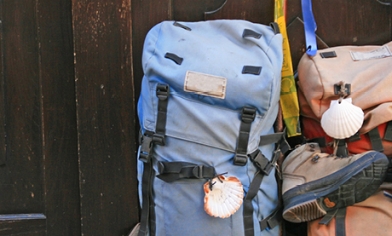
Going backpacking is one of life’s great adventures. But before you set off ...

If you're living with cancer but love to travel, can you get travel insurance ...
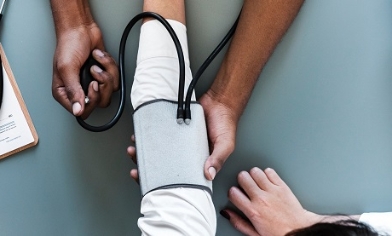
Travelling with high blood pressure is fine – but it’s important to make sure ...
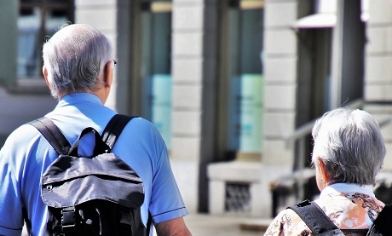
As you get older, being able to go where you want when you want is all part of ...

Travel insurance for a holiday in the UK isn't something you must have, but it ...

With festivals overseas becoming the new norm, festivalgoers need to do a bit ...

- Entertainment
Foreign Office travel advice: Eight countries added to 'do not travel' warning list for UK holidaymakers after declared 'too dangerous'
The Foreign Office has added eight countries to its “do not travel” warning list.

The government urges UK holidaymakers not to travel to the eight new countries added to the list as they have been declared “too dangerous”.
The Foreign Commonwealth and Development Office (FCDO) issues advice to holidaymakers and regularly updates its travel advisories based on how dangerous countries are perceived to be and what particularly to look out for when visiting them. In total, 66 countries - or parts of countries - have been declared "too dangerous" for British tourists by the FCDO.
Eight nations have been added to the list by FCDO, these are Russia, Ukraine, Iran, Sudan, Lebanon, Israel, Belarus and the Palestinian territories.
These nations are categorised as either on the 'red list' or 'black list' by experts in the UK Foreign Office.
The FCDO does not ban UK citizens from travelling to these countries but it says they may find themselves without any government support if something were to go wrong.
The advice given for each country is slightly different but the same warning is given that help may not be offered to those who travel.
The Belarus warning from the FCDO reads: "Russian military operations are taking place in Belarus.
"There is some risk that direct conflict linked to the war in Ukraine may spread to Belarus. If conflict starts, FCDO’s ability to offer consular assistance will be severely limited. Routes out of the country are limited, particularly by air."
Currently the Foreign Office is sternly advising against travel, or all but essential travel, to 24 destinations on the 'black list'.
These destinations are: Afghanistan, Belarus, Burkina Faso, Central African Republic, Chad, Haiti, Iran, Iraq, Israel, Lebanon, Libya, Mali, Niger, North Korea, Palestinian territories, Russia, Somalia, Somaliland, South Sudan, Sudan, Syria, Ukraine, Venezuela, and Yemen.

More than 1,800 homes near Wolverhampton in the dark due to power outage Wolverhampton | 8 hours ago
Man 'seriously' hurt in attack by gang 'armed with machetes' in Bloxwich road Crime | 13 hours ago
Wolves boss Gary O'Neil 'optimistic' on early Pedro Neto return Plus Wolves | 6 hours ago
'Help me find my childhood dolls after they were accidentally donated to a charity shop' Brierley Hill | 21 hours ago
'My tea room got the worst review ever and our response made us even busier' Plus Wolverhampton | 21 hours ago
Middle East latest: US 'moving additional assets' to region amid fears of Iran attack on Israel
Washington officials expect Iran to attack Israel in retaliation to a strike on its embassy in Syria - as the US says it will not be drawn into any wider war and Tehran suggests its response will be non-escalatory. Listen to our latest podcast on how tensions are rising in the region.
Friday 12 April 2024 23:01, UK
- Israel-Hamas war
- Iran's threat of attack is real and viable, White House says
- US 'moving additional assets' to Middle East
- Iran attack on Israel expected in coming days - reports
- Tehran 'telling US' it will avoid major escalation
- Number of Palestinians killed by Israel in Gaza rises to 33,634, health ministry says
- Dominic Waghorn: Risk of bigger war rising - but Biden knows he can't blink
- Alex Crawford report : Yemeni fishermen face threat of Houthi attack - but on Gaza they are firmly behind the militants
- Explained: Why is Iran threatening to attack Israel?
That's all for our coverage for now.
Well be back tomorrow morning with more updates on the Israel-Hamas war and wider tensions in the Middle East.
Tensions in the Middle East are continuing to increase this evening, as the US moves assets in the region to better protect its forces and bolster regional deterrence.
It comes amid the threat of an Iranian attack on Israel in retaliation to a deadly strike on its embassy in Syria.
Earlier, Joe Biden was asked what his message was to Iran.
You can watch the US president's answer below....
More details now on the news we brought you earlier about that US military moving assets in the Middle East.
An American defence official told Sky News the move was being made to bolster regional deterrence efforts and increase protection of US forces in the region.
Now, our US partner NBC News has reported most of the assets involved are already deployed in the area and just moving around.
Officials said moves were being made to be better positioned for defence of Israel and US assets and in case the US needs to respond to whatever Iran does.
The specific assets being moved in the region have not been identified.
Germany has advised it citizens to leave Iran amid escalating tensions in the Middle East.
The German foreign offices warned there was a risk of sudden escalation in Tehran's situation with Israel and also of arbitrary arrest in the country.
"In the current tensions, especially between Israel and Iran, there is a risk of a sudden escalation," it wrote in a travel warning.
"It cannot be excluded that air, land and sea transport routes could be affected."
It said Germans were at "concrete risk" of being arrested, interrogated and being given long prison sentences.
"Dual citizens with Iranian and German nationality are especially at risk," it added.
Three Palestinians have been killed in the West Bank today in military raids and settler rampage.
Israeli forces shot dead two Palestinians, including a member of the armed wing of Hamas, in raids.
While, the Palestinian Health Ministry has reported at least one person was killed in an Israeli settler rampage near Ramallah.
The Israeli military said Mohammad Omar Daraghmeh, who has been described as the head of Hamas infrastructure in the Tubas area, was killed during an exchange of fire with security forces.
It said a number of weapons and military-style equipment, including automatic rifles were found in his vehicle.
Hamas confirmed Daraghmeh's death and his membership of its armed Al Qassam Brigades.
The official Palestinian news agency WAFA said another man was killed by Israeli forces conducting a raid in the al Far'a refugee camp in Tubas.
Hamas mourned the man's death but did not claim him as a member.
The military said forces carrying out the operation opened fire on Palestinians who threw explosive devices and killed one man it said was attempting to attack them.
Israel has stepped up military raids in the West Bank since launching its operation in Gaza.
Joe Biden has reiterated US support for Israel, saying his administration is "devoted" to its defence.
The US president said his message to Iran, which has threatened to take military action against Israel, was simply "don't".
"We will support Israel. We will help defend Israel and Iran will not succeed," he said.
His comments come after a US defence official confirmed to Sky News that "additional assets" were being moved to the Middle East to "bolster regional deterrence efforts".
Iran has threatened to attack Israel in retaliation to a deadly strike on its embassy in Syria last week.
Israel has been widely blamed for the attack, but has not commented on it publicly.
Around 40 rocket launches have been identified crossing from Lebanon, the Israeli military has said.
In a Telegram post, the Israel Defence Forces said some rockets were intercepted, and the rest fell in open areas.
It also confirmed two Hezbollah explosive drones that had entered Israeli territory from Lebanon had been intercepted.
"Over the last few hours, the IDF struck in a number of locations in southern Lebanon in order to remove a threat," it added.
Israel and the Lebanese militant group Hezbollah have regularly exchanged fire across the border since the war in Gaza erupted last year.
Throughout the day, we have been reporting on the threat of an Iranian attack on Israel.
The US has warned the threat is "real" and "viable" and, in the last few moments, an American defence official has confirmed "additional assets" are being moved to the Middle East as a result.
Our security and defence analyst Michael Clarke has said it is "quite likely" Iran will attack, and the US has been given signals all day that it could be "imminent".
He added he is "fairly sure" Iran will not let go of the deadly strike on its embassy in Syria - which is what sparked the threat of an attack in the first place.
"The United States is pretty clear now that something is about to happen, maybe tonight, maybe tomorrow, but it won't be much further than that, and it might be quite big," Prof Clarke said.
He explained that the US has said it is more likely Iran will launch a direct attack on Israel, and the Iranians do have missiles with the capability to do so.
Israel has made it very clear it will hit back if Iran decides to attack, and Prof Clarke said some Israelis would "almost like that to happen" so they could attack some of Iran's nuclear facilities.
You can watch his full analysis below...
The US is "moving additional assets" to the Middle East, a defence official has told Sky News.
The move will "bolster regional deterrence efforts and increase force protection for US forces", the official said.
Our US correspondent Mark Stone said no further details have been provided.
"That means more military hardware is being moved or will be moved to the region to do two things - try to deter Iran from taking any massive action and also to protect existing American forces that are in the region," he said.
"I think the consensus among experts is that the Iranian will respond, but they will almost certainly respond against Israel directly rather than any American military in the region.
"Nevertheless, what that response will look like and what it will mean in terms of an Israeli response, we don't know yet."
The announcement comes after the White House said it changed its force posture in the region amid threats of an Iranian attack on Israel.
Fears of an escalating situation in the Middle East have grown in recent days after Iran threatened to attack Israel.
But how is Iran involved in the conflict - and why is it threatening to attack Israel?
Firstly, Iran is the biggest backer of Hamas, having provided weapons and training to the militant group in previous years.
It also backs Hezbollah in Lebanon and the Houthis in Yemen - both of which have been involved in attacks on Israel since the war in Gaza erupted last year.
Historically, Israel and Iran have been arch enemies, with both countries allegedly behind a long series of attacks on each other's interests.
Tensions between the two nations have been increasingly stretched since Israel entered Gaza following the 7 October Hamas attacks.
But, they became incredibly high last week after an attack on the Iranian embassy in Syria.
That's why Iran is threatening to attack Israel.
Two generals and seven members of the Iranian Revolutionary Guard were killed in the strike in Damascus, which Tehran has blamed on Israel.
The US military has said it also believes Israel was behind the attack.
However, Israel has not publicly commented on the airstrike.
Iran has been warned by the US not to use the embassy attack as a pretext to escalate the situation in the region.
Be the first to get Breaking News
Install the Sky News app for free

- International edition
- Australia edition
- Europe edition
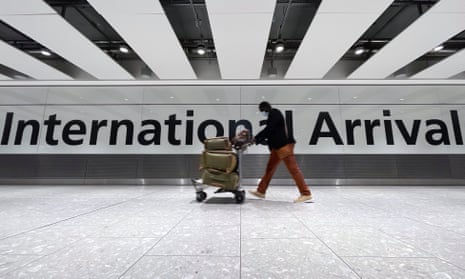
Heathrow urges government to scrap £10 fee for transit passengers
London hub says charge for overseas travellers using UK airports puts country at competitive disadvantage
Heathrow has called on the government to scrap a new £10 charge for overseas travellers using UK airports to connect to other flights, warning that it puts UK airports at a competitive disadvantage compared with other European rivals.
The government introduced the Electronic Travel Authorisation (ETA) in November for Qatari nationals travelling to the UK from Qatar, with a wider rollout for other countries throughout 2024.
The ETA is largely based on the US Electronic System for Travel Authorization (Esta) system, and requires travellers to apply to enter the country before departing and pay a £10 fee.
This applies not only to direct flights from the country but also for those who are using UK airports for more than two hours to connect to other flights.
Heathrow said while it supported the overall rationale behind the ETA, transiting passengers needed to be exempted as this was hitting passenger numbers.
The airport pointed to the impact it had on travellers from Qatar – it said there had been 19,000 fewer transit passengers coming through the airport in the first four months of ETA rules applying. It added that each month recorded the lowest proportion of transiting passengers from the country for 10 years.
The update said: “This is a huge blow to UK competitiveness as many long-haul routes, which are highly important to the UK’s economy, exports and wider connectivity, rely on transit passengers. With more connecting passengers expected to choose other hubs as the scheme expands, minsters need to take action to remove this measure.”
Heathrow recorded its busiest Easter weekend this year, with 936,000 passengers using the airport across the bank holiday period. This contributed to 7 million people travelling through the London hub in March, the highest ever for that month.
The chief executive, Thomas Woldbye, said: “The government needs to exempt airside transit passengers from the ETA scheme to avoid encouraging passengers to spend and do business elsewhere. We need to level the playing field, so the UK aviation industry continues to be world class.”
A Home Office spokesperson said: “We are introducing an electronic travel authorisation scheme to enhance border security by increasing our knowledge about those seeking to come to the UK and preventing the arrival of those who pose a threat.
“Requiring transit passengers to obtain an ETA stops people who may use connecting flights to avoid gaining permission to travel to the UK. We are keeping this under review as we continue to roll out the scheme.”
- Airline industry
- Heathrow airport
- Air transport
- Transport policy

BA, easyJet and Wizz Air resume flights to and from Israel

Two passenger planes clip wings at Heathrow

Heathrow returns to profit with record passenger numbers forecast for 2024

Dutch airline KLM misled customers with vague green claims, court rules

Saudi Arabia could take ‘effective majority control’ of London Heathrow

EasyJet joins calls for UK government to help fund hydrogen-powered flight

United Airlines CEO vows to review recent safety incidents and learn ‘the right lessons’

Saudi Arabia’s wealth fund takes 10% stake in Heathrow airport

Qantas workers suffered depression after being illegally sacked, compensation hearing told

Strong winds and staff shortages causing delays at Heathrow airport
Most viewed.
- International
April 11, 2024 - Israel-Hamas war
By Heather Chen , Antoinette Radford, Tori B. Powell , Aditi Sangal and Elise Hammond , CNN
Our live coverage of Israel's war on Hamas in Gaza has moved here .
UN committee fails to reach consensus on full Palestinian membership, Security Council president says
From CNN’s Richard Roth and Michael Rios
A specialized UN committee failed to reach a consensus Thursday on Palestinian membership in the United Nations, according to the president of the UN Security Council.
Two-thirds of the committee members were in favor of moving on with membership, with many countries arguing that “Palestine fulfills all the criteria that are required” to be granted full state member status, Malta's Ambassador and Security Council President Vanessa Frazier said.
She added that no one explicitly objected to the membership qualifications.
Frazier also said she would circulate a draft report on the deliberations as soon as Friday. If the committee doesn’t agree on the report, it could hold another meeting to iron out any differences.
Asked whether the process of deliberating Palestinian membership in the committee is now over, Frazier said, “Unless the next step of agreeing (to) the report of the committee warrants another meeting to iron out the differences, it’s not foreseen that there would be any further committee action.”
But she noted that any UN Security Council member can still table a resolution to vote on Palestinian membership at any time, regardless of the committee's report.
The US and Middle East brace for a possible Iran attack that could escalate the conflict. Here's the latest
From CNN staff

Concerns about a possible Iranian attack against Israel has prompted many diplomatic conversations around the globe.
Here are some developments on diplomacy around the threat of an attack:
- Iran's statement: The imperative for Tehran to "punish" Israel for the deadly strike on the Iranian consulate in Damascus last week might have been avoided if the attack had been condemned at the United Nations, Iran’s Mission to the UN said Thursday.
- US and UK diplomacy: US Secretary of State Antony Blinken spoke with the foreign ministers of Turkey, China and Saudi Arabia on Wednesday night and Thursday morning to tell them that countries should be urging Iran not to escalate the conflict in the Middle East after threats made by Tehran against Israel, according to a State Department spokesperson. The top US general for the Middle East is also in Israel . Additionally, Britain's foreign secretary warned his Iranian counterpart on Thursday that Tehran “must not draw” the Middle East into a wider conflict .
- Israel receives US support: Israeli Defense Minister Yoav Gallant spoke with Blinken and US Defense Secretary Lloyd Austin. The US officials expressed the country's support for Israel against Iranian threats. Gallant warned that such an attack could lead to a regional escalation.
- Travel restrictions: The US State Department restricted the travel of US government personnel in Israel in the wake of public threats against Israel by Iran. “The security environment remains complex and can change quickly depending on the political situation and recent events,” the alert noted. US officials are on high alert for a potential retaliatory strike by Iran or its proxies against Israel.
Meanwhile, here's some other updates:
- Hamas on hostages: A member of Hamas' political bureau said a prisoner-hostage exchange is being discussed as part of larger ceasefire negotiations. "Part of negotiations is to reach a ceasefire agreement to have enough time and safety to collect final and more precise data" on the hostages held in Gaza, Basem Naim said in a statement on Thursday. "Because they (hostages) are in different palaces, (being held) by different groups, some of them are under the rubble killed with our own people, and we negotiate to get heavy equipment for this purpose."
- Updates on aid to Gaza: It is clear that Israel is working to ramp up humanitarian aid to Gaza, but it has not yet implemented all of the measures it has announced, a top United Nations humanitarian official said. Aid coming in trucks from Israel has to be "segregated from water, from food, from medical items" before it goes into Gaza, said Jamie McGoldrick, the UN’s humanitarian coordinator in Jerusalem. “Getting 400 trucks from Kerem Shalom doesn't mean 400 trucks go into Gaza,” he said, adding that the logistical complications are numerous, and take time to resolve. He also said Israel’s restrictions on movement inside the strip complicate matters.
Anera charity resumes work in Gaza after pausing when Israeli strike killed 7 World Central Kitchen staff
From CNN's Tala Alrajjal and Mohammed Tawfeeq
American Near East Refugee Aid (Anera) has resumed Gaza operations "after a temporary pause" following an airstrike that killed seven World Central Kitchen (WCK) aid workers on April 1.
"As you know, the decision to temporarily pause our operations was not an easy one. We followed the direction of our staff in Gaza, who've faced death, loss, and destruction since the start of the war," Sean Carroll, the president and CEO of Anera, said in a statement on Thursday. "After the killing of Anera staff member Mousa Shawwa , followed by the attack that killed seven aid workers from World Central Kitchen, we made the difficult but necessary decision to pause aid operations on April 2," Carroll added in the statement.
Carroll said Israeli authorities informed him during a meeting Thursday that "certain measures would be taken to protect humanitarian aid workers in Gaza – including Anera's staff."
"With the full support of our Gaza team, we have determined that the circumstances have changed sufficiently to resume our vital humanitarian work in Gaza," Carroll said.
Anera on Thursday resumed "full operations in Gaza to deliver meals, food parcels, hygiene kits, tents, medical treatments, and more to families in dire need," according to the statement.
Iran says its imperative to punish Israel could have been avoided had UN Security Council condemned attack
From CNN’s Natalie Barr and Adam Pourahmadi
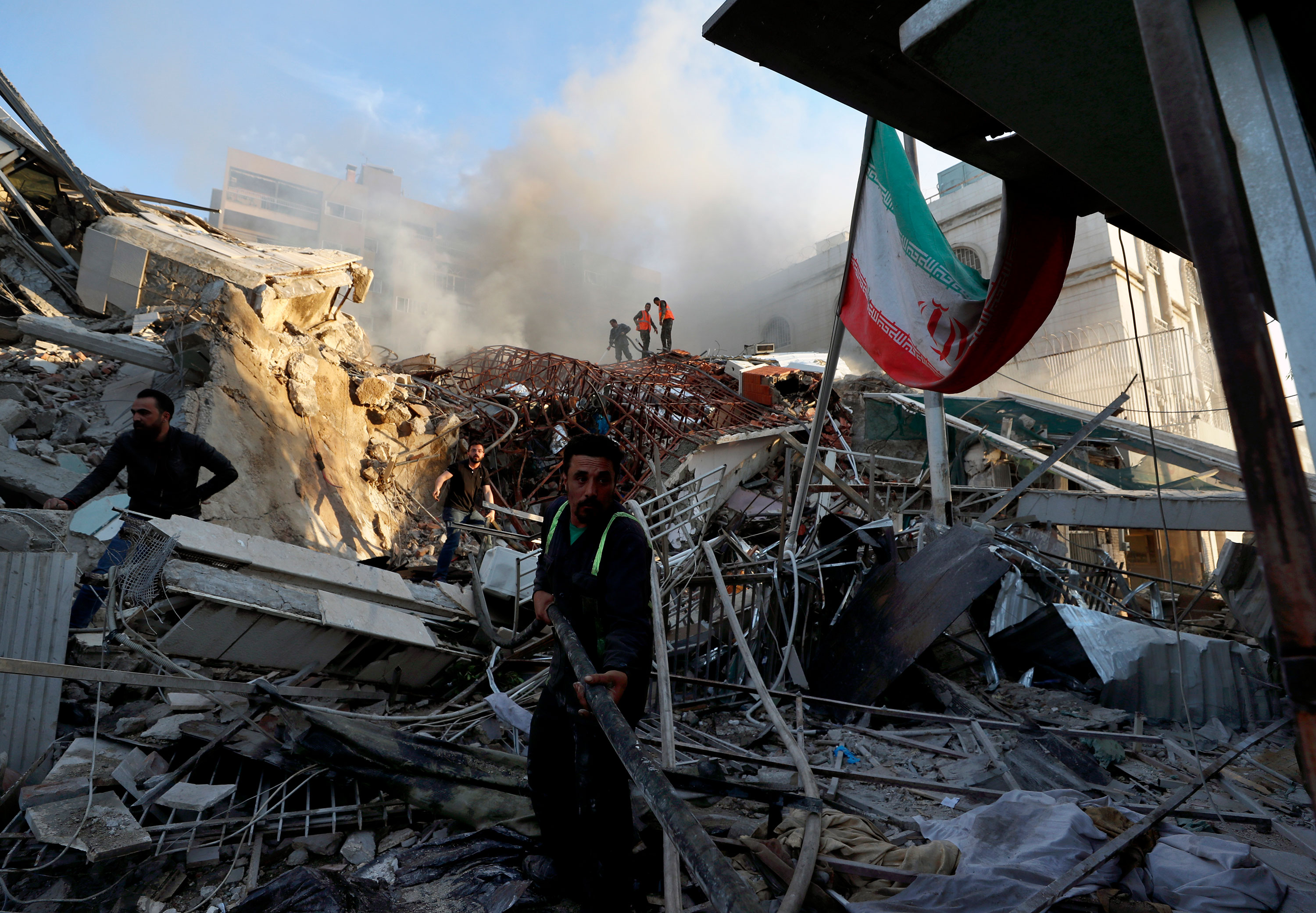
The imperative for Tehran to "punish" Israel for the deadly strike on the Iranian consulate in Damascus last week might have been avoided if the attack had been condemned at the United Nations, Iran’s Mission to the UN said Thursday.
“Had the UN Security Council condemned the Zionist regime’s reprehensible act of aggression on our diplomatic premises in Damascus and subsequently brought to justice its perpetrators, the imperative for Iran to punish this rogue regime might have been obviated," the mission said on X.
The UN Secretary-General António Guterres condemned the attack on April 1, according to a statement from the UN spokesperson Stephan Dujarric. A Security Council discussion was held on April 2 to discuss the attack, but differences among members prevented any formal action or condemnation from taking place.
The United States is on high alert and actively preparing for a “significant” attack by Iran targeting Israeli or American assets in the region in response to the strike in Damascus that killed top Iranian commanders.
UK foreign secretary warns Iran not to draw Middle East into wider conflict
From CNN's Natalie Barr
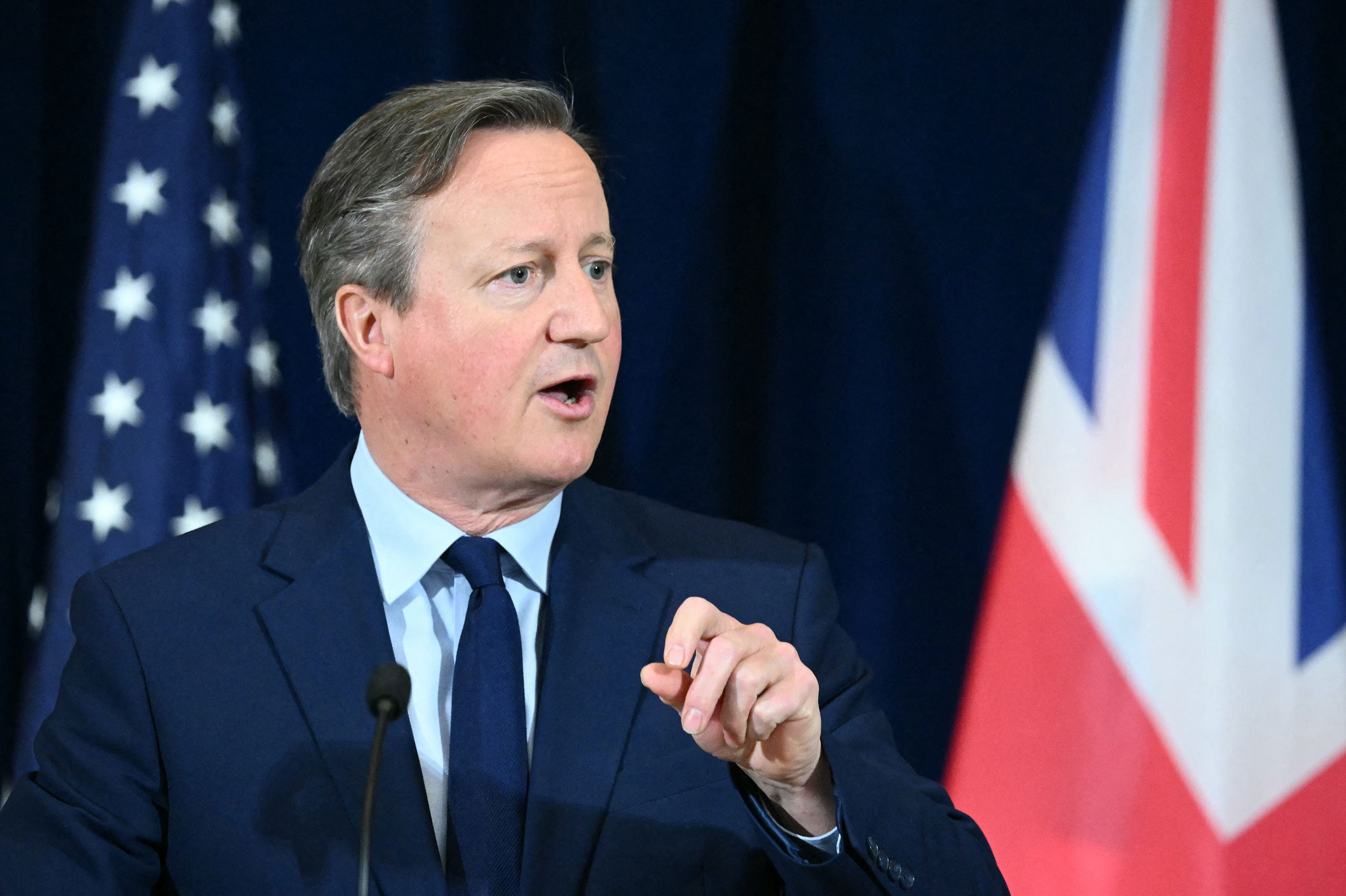
Britain's foreign secretary warned his Iranian counterpart on Thursday that Tehran “must not draw” the Middle East into a wider conflict following a series of escalating threats made by Iran toward Israel.
British Foreign Secretary David Cameron told Iran's Foreign Minister Hossein Amir-Abdollahian that the United Kingdom was "deeply concerned about the potential for miscalculation leading to further violence. Iran should instead work to de-escalate and prevent further attacks," according to a post on X .
Iran's state-aligned Tasnim news agency on Thursday reported that Amir-Abdollahian had told Cameron that the silence from the UK and the United States following Israel’s attack on the Iranian consulate in Damascus last week only served to encourage Israel to continue waging war in Gaza and expand its conflict in the region.
US and Israeli defense leaders discuss fears of Iranian attack
From CNN’s Michael Conte in Washington, DC, Tamar Michaelis in Jerusalem and Larry Register in Atlanta
US Defense Secretary Lloyd Austin spoke with Israeli Defense Minister Yoav Gallant today to “reaffirm the US ironclad commitment to Israel’s security against threats from Iran and its proxies,” according to a Pentagon spokesperson.
The call comes a day after Iran's Supreme Leader Ayatollah Ali Khamenei said Israel " must be punished and it will be" following a strike on an Iranian embassy compound in Syria that killed seven Iranian officials.
Israel “will not tolerate an Iranian attack on its territory,” the statement read, adding that the two defense leaders also discussed detailed preparations “for an Iranian attack against the State of Israel.”
Gallant said an Iranian attack on Israel could lead to a regional escalation.
It is the second discussion held between Gallant and Austin over the past week, according to the statement. Gallant expressed his appreciation for Austin’s personal commitment to the security of the State of Israel and for the deepening cooperation between the defense establishments of both countries, as well as between the Israel Defense Forces and US CENTCOM.
State Department restricts personnel travel in Israel amid concerns over Iranian threats
From CNN's Jennifer Hansler
The US State Department has restricted the travel of US government personnel in Israel in the wake of public threats against Israel by Iran.
“Out of an abundance of caution, U.S. government employees and their family members are restricted from personal travel outside the greater Tel Aviv (including Herzliya, Netanya, and Even Yehuda), Jerusalem, and Be’er Sheva areas until further notice,” a security alert posted by the US Embassy Thursday said. “U.S. government personnel are authorized to transit between these three areas for personal travel.” “The security environment remains complex and can change quickly depending on the political situation and recent events,” the alert noted.
State Department spokesperson Matthew Miller said he would not “speak to the specific assessments that led to us to restrict our employees and family members’ personal travel, but clearly we are monitoring the threat environment in the Middle East and specifically in Israel.”
“We have seen Iran making public threats against Israel in the past few days,” Miller said. “Israel is in a very tough neighborhood and we have been monitoring the security situation. You saw us slightly adjust for travel warnings at the beginning of this conflict and we conduct ongoing assessments all the time about the situation on the ground.”
US officials are on high alert for a potential retaliatory strike by Iran or its proxies against Israel.
Hamas says ceasefire with Israel is essential to collect data on hostages held in Gaza by different groups
From CNN's Abeer Salman and Mohammed Tawfeeq
A member of Hamas' political bureau said a prisoner-hostage exchange is being discussed as part of larger ceasefire negotiations.
"Part of negotiations is to reach a ceasefire agreement to have enough time and safety to collect final and more precise data" on the hostages held in Gaza Basem Naim said in a statement on Thursday. "Because they (hostages) are in different palaces, (being held) by different groups, some of them are under the rubble killed with our own people, and we negotiate to get heavy equipment for this purpose," he added.
Naim's statement was in response to questions from media outlets about whether Hamas has been rejecting the latest proposal, which was made in Cairo over the weekend, because it can not release 40 hostages in the first phase of a three-stage ceasefire deal.
According to an Israeli official and a source familiar with the discussions, Hamas indicated it is currently unable to identify and track down those 40 Israeli hostages, raising fears that more hostages may be dead than are publicly known.
CNN's record of the conditions of the hostages also suggests there are fewer than 40 living hostages who meet the proposed criteria.
Please enable JavaScript for a better experience.
Cookies on GOV.UK
We use some essential cookies to make this website work.
We’d like to set additional cookies to understand how you use GOV.UK, remember your settings and improve government services.
We also use cookies set by other sites to help us deliver content from their services.
You have accepted additional cookies. You can change your cookie settings at any time.
You have rejected additional cookies. You can change your cookie settings at any time.
- Alerts, recalls and safety information: drugs and medical devices
Field Safety Notices: 1 to 5 April 2024
List of Field Safety Notices from 1 to 5 April 2024
If you receive a field safety notice (FSN) from a manufacturer you must always act on it.
MHRA publishes the following for information only.
If you have a question about a particular FSN contact the manufacturer.
Latest FSNs
View the latest FSNs
View a list of FSNs published since January 2020
View FSNs since November 2014 . FSNs before this date are on the National Archives website
Abbott: Aveir VR Leadless Pacemaker
Intracardiac pacemaker
Model: LSP112V
MHRA reference: 29240940
Cook: EchoTip Ultra Endoscopic Ultrasound Needle
01 April 2024
Model: ECHO-19
MHRA reference: 29239345 FSN
MHRA reference: 29239345 Reply form
Green Power: Rechargeable lithium battery pack
MHRA reference: 29242630
KARL STORZ: 8694 - LASER Application Instrument, 23 cm, 461000 - LEUNIG-GREVERS LASER Application
26 March 2024
Rigid endoscope working guide
MHRA reference: 29228773
Leica Microsystems: M530 OHX, PROvido, Proveo 8
01 September 2023
microscope, surgical, general purpose
MHRA reference: 29233321
Medtronic: HVAD Pump Implant Kit
04 April 2024
MHRA reference: 29243508
natus: BRAIN QUICK SOFTWARE
20 March 2024
MHRA reference: 29231548
RaySearch Laboratories: RayStation
28 March 2024
Various Radiotherapy Instruments – Software
Model: 7-2024A including some service packs
MHRA reference: 29225345
Smiths Medical: Cardinal Health Branded Monoject Syringe
08 April 2024
Bedside infusion pump, single-channel
MHRA reference: 29242780
Swemac: Motec Wrist Radius Hemi Prosthesis
Partial wrist radius prosthesis
MHRA reference: 29244802
Is this page useful?
- Yes this page is useful
- No this page is not useful
Help us improve GOV.UK
Don’t include personal or financial information like your National Insurance number or credit card details.
To help us improve GOV.UK, we’d like to know more about your visit today. We’ll send you a link to a feedback form. It will take only 2 minutes to fill in. Don’t worry we won’t send you spam or share your email address with anyone.

IMAGES
VIDEO
COMMENTS
We'd like to set additional cookies to understand how you use GOV.UK, remember your settings and improve government services. ... Updated Foreign Travel Checklist. 27 October 2022. Checklist has ...
Put containers of liquids into a clear resealable plastic bag which holds no more than 1 litre and measures about 20cm x 20cm. Take the plastic bag out of your hand luggage while queueing, ready ...
TripAdvisor.co.uk. Browse hotel, restaurant & attraction reviews & photos by real travellers on the world's largest travel review site. Checklist for travellers www.fco.gov.uk The safe and easy way to carry your foreign currency. For further information or to order today visit www.cashpassport.com or any Travelex branch. We'll help you plan ...
BBC News. The number of countries on the UK Covid travel red list will be cut from 54 to seven, the government says. South Africa, Brazil and Mexico come off the red list, which requires ...
From 30 August, Canada, Denmark, Finland and Switzerland will be among those added to the UK's green travel list. ... Check the government's website for other amber list countries.
Transport Secretary Grant Shapps has outlined England's new summer travel rules. Twelve countries and territories including Portugal, Israel and Gibraltar are on the green list of destinations ...
Summary. UK government publishes an update to its green list for countries where returning travellers will not need to quarantine. The list includes Spain's Balearic islands, Barbados, Bermuda ...
Travel insurance can cover a range of scenarios, such as: medical emergencies and repatriation. lost or stolen baggage. trip cancellations or interruptions. natural disasters. You must purchase insurance cover that is appropriate for your travel plans. Travelling without the right cover can be very expensive if things do go wrong while you are ...
Visit: validity requirements for applications for visit visas and permission to stay as a visitor. This section tells caseworkers how to consider whether the validity requirements are met for applications for entry clearance or permission to stay as a Visitor. See: paragraphs V 2.1 to V 2.6 of Appendix V: Visitor.
Fri 7 May 2021 14.02 EDT. Last modified on Thu 3 Jun 2021 06.18 EDT. T he government has just announced its green list for quarantine-free international travel into England. The countries on it ...
A key part of any checklist for traveling to London is to make sure you have a valid passport, and check to see whether or not you need a visa to visit London on this site. Visas can take a long time to process, so make sure to start this part of your London travel planning far in advance. This is probably the most important part of preparing ...
Monday 28 March: The UK Government has updated its advice for travelling abroad, see: Travel abroad during coronavirus, including the following checklist of what travellers need to do: Check foreign travel advice for all countries you will visit or travel through Arrange any COVID-19 tests you will need to enter the countries that you will travel to Find out how you can use the NHS COVID Pass ...
Good travel insurance for everyone in your family should be top of the holiday checklist. It can provide extra reassurance as it may cover you for cancellation before your trip, missed or delayed flights, or lost, stolen luggage and other belongings such as passports and cash. Most importantly, it may cover emergency medical costs if you need ...
The Foreign Office has added eight new countries to its "do not travel" warning list for being "too dangerous". (Photo: AFP via Getty Images) The government urges UK holidaymakers not to ...
BBC News. The international travel traffic light system is being simplified in England with a single red list, as part of an overhaul of the rules from 4 October. Transport Secretary Grant Shapps ...
Friday 12 April 2024 23:01, UK. Israel-Hamas war; ... "In the current tensions, especially between Israel and Iran, there is a risk of a sudden escalation," it wrote in a travel warning.
Details. Use this guidance to find out which documents you need to support your application for a standard visitor visa. Published 1 October 2012. Last updated 1 February 2024 + show all updates ...
Pet Travel to a foreign country can be complex and time-consuming. Before you start the process, you will need to know the following: the type of animal traveling, the destination country, the date of departure from the United States, and whether or not the pet will be traveling alone, as cargo, or with a person in the cabin of the plane.
Up to now the UK government placed certain jobs with skills shortages on its Shortage Occupation List to help employers grappling with skills gaps. Employers have been able to sponsor migrant workers in these roles with lower application fees and a 20% discount on the general Skilled Worker visa salary threshold as well as a 20% discount on the ...
The government introduced the Electronic Travel Authorisation (ETA) in November for Qatari nationals travelling to the UK from Qatar, with a wider rollout for other countries throughout 2024.
For pet travel requirements not listed, APHIS has not been officially informed by the foreign country about the requirements for your pet's travel. We recommend that you contact a government official of the country you are traveling to for more information. Country of Destination Contact Information. World Organisation for Animal Health: Members
Austria, Germany, Slovenia, Slovakia, Latvia, Romania and Norway to be added to the government's green list for travel. India, Bahrain, Qatar and the United Arab Emirates (UAE) will also be ...
Travel restrictions: The US State Department restricted the travel of US government personnel in Israel in the wake of public threats against Israel by Iran. "The security environment remains ...
A list of job types included on the immigration salary list in each area of the UK. You can be paid less if you have a job on the list for the Skilled Worker visa and the Health and Care Worker visa .
List of Field Safety Notices from 1 to 5 April 2024. We use some essential cookies to make this website work. We'd like to set additional cookies to understand how you use GOV.UK, remember your ...